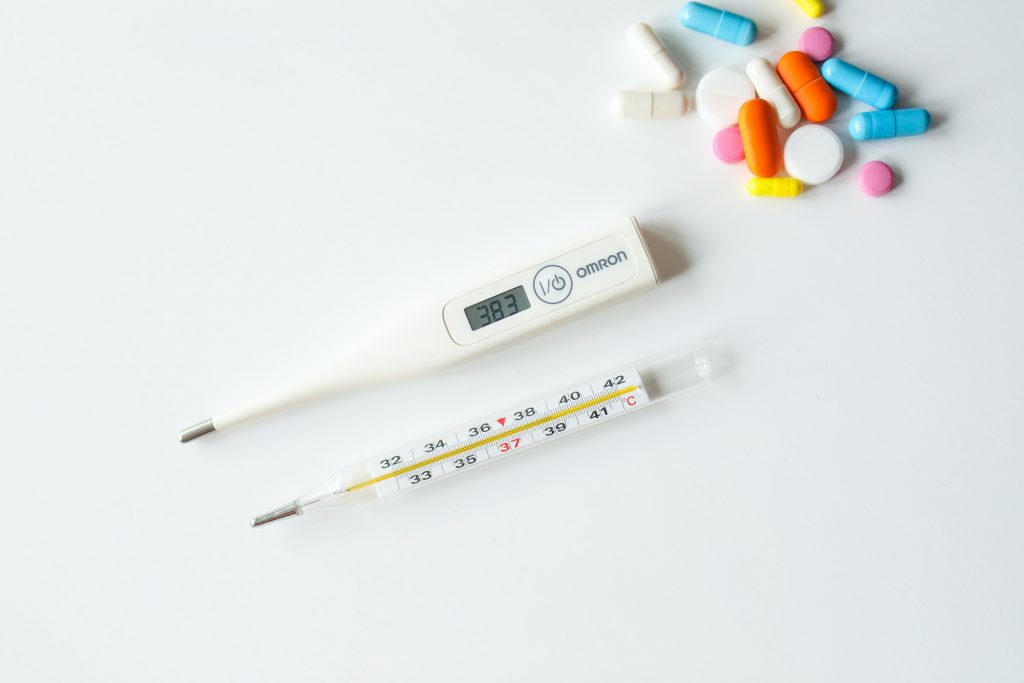When you have a fever, all you want to do is get rid of it as quickly as possible. Whether your fever is caused by the flu or a more serious infection, there are some things you can do to help lower your temperature and make yourself more comfortable. So how do you break a fever? Let’s find out.
There are several ways to bring down a fever, but the most effective method will depend on the cause of the fever and its severity. If your fever is mild and doesn’t seem to be affecting your daily life, you can try some home remedies like drinking lots of fluids and getting rest. More serious fevers may require medication like ibuprofen or acetaminophen.
How to Break a Fever Fast:

Most people want to know how to break a fever fast when they are stricken with one. A fever is your body’s natural response to infection, and in most cases, it will go away on its own. However, if you’re uncomfortable or it’s interfering with your daily life, there are some things you can do to bring it down.
There are many different ways to break a fever, depending on the cause and severity. If your fever is mild and doesn’t seem to be causing any other problems, you can try some home remedies like drinking lots of fluids and getting rest. If your fever is more serious, you may need medication like ibuprofen or acetaminophen.
If your fever is accompanied by severe body aches, chills, or a rash, it’s best to see a doctor right away as these could be signs of a more serious infection. The same goes for fevers that last longer than three days or come with a high temperature (103 degrees Fahrenheit or higher). However, if your fever is short-lived and not accompanied by any other symptoms, there’s no need to see a doctor—it’s probably just a response to something like teething in babies or stress in adults.
When to Seek Medical Attention for Fever
While it’s important to know how to break a fever, it’s also important to be aware of when you should see a doctor for your fever. If your fever is accompanied by severe body aches, chills, or a rash, it’s best to seek medical attention right away as these could be signs of a more serious infection. The same goes for fevers that last longer than three days or come with a high temperature (103 degrees Fahrenheit or higher).
It’s also important to seek medical attention for fever in infants and young children, as their bodies are more vulnerable to infection and complications. In addition, never give aspirin to children under the age of 18 as it can lead to a serious condition called Reye’s syndrome.
If you’re unsure about whether or not your fever warrants a trip to the doctor, it’s always better to err on the side of caution and seek medical advice. Stay safe and stay cool!
How to Reduce Fever in Babies and Children

It can be especially worrisome to see a young child with a fever. However, fevers in infants and children often go away on their own and aren’t usually a cause for concern unless accompanied by other symptoms.
To help your child feel more comfortable and reduce their fever, you can dress them in light clothing, offer plenty of fluids, and use a cool damp cloth to gently lower their temperature. Aspirin should never be given to children under the age of 18 as it can lead to a serious condition called Reye’s syndrome.
It’s best to stick with acetaminophen or ibuprofen to bring down their fever but always check with your doctor before giving any medication to your child.
If your child’s fever persists or is accompanied by other symptoms, it’s best to seek medical attention. It’s always better to err on the side of caution when it comes to the health of your child.
However, if your fever is persistent or accompanied by other symptoms, it’s important to see a doctor as it could be a sign of a more serious condition. Stay safe and stay cool!
Conclusion:
There are a few ways to break a fever fast, including taking over-the-counter medications, using cooling techniques, and staying hydrated. It is important to discuss these options with your healthcare provider before attempting them on your own and to seek medical attention if the fever does not decrease or symptoms worsen.
Remember that fever itself is not necessarily dangerous, but rather a sign that the body is fighting off an illness or infection. Letting the fever run its course and giving your body the support it needs to heal may be the best solution in some cases. However, if you do choose to try breaking a fever at home, always monitor for any changes in symptoms and seek medical advice as necessary.